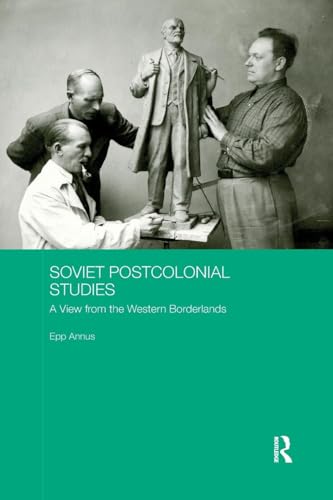Soviet Postcolonial Studies: A View from the Western Borderlands
Soviet Postcolonial Studies: A View from the Western Borderlands is backordered and will ship as soon as it is back in stock.
Couldn't load pickup availability
Genuine Products Guarantee
Genuine Products Guarantee
We guarantee 100% genuine products, and if proven otherwise, we will compensate you with 10 times the product's cost.
Delivery and Shipping
Delivery and Shipping
Products are generally ready for dispatch within 1 day and typically reach you in 3 to 5 days.
Book Details
-
Author: Epp Annus
-
Publisher: Routledge
-
Language: English
-
Edition: Illustrated
-
ISBN: 9780367234546
-
Number of Pages: 298
-
Cover: Paperback
-
Dimensions: 9.2 x 6.2 x 0.7 inches
-
Weight: Not specified
About the Book
Postcolonial Studies in the Former Soviet Bloc offers a fresh perspective on postcolonial theory by focusing on the experiences and histories of the countries within the former Soviet bloc. While much of postcolonial studies has traditionally centered on the West European colonial experience, this book shifts the lens to explore the complex relationship between Soviet coloniality and Soviet modernity.
The book applies established postcolonial theory to the unique context of the former Soviet states and simultaneously uses these nations’ experiences to refine and advance postcolonial thought. It covers a broad range of topics including the co-constitution of Soviet colonality with Soviet modernity, the emotional and affective structure of identity creation among both national and imperial subjects, and how cultural imaginaries and everyday material realities played a significant role in shaping Soviet life.
Drawing from a diverse range of sources, this volume presents thought-provoking insights relevant to scholars in multiple fields. It is an essential read for anyone interested in the intersections of postcolonial theory, Soviet history, and the ways in which colonial experiences shaped everyday lives in the Eastern bloc.





